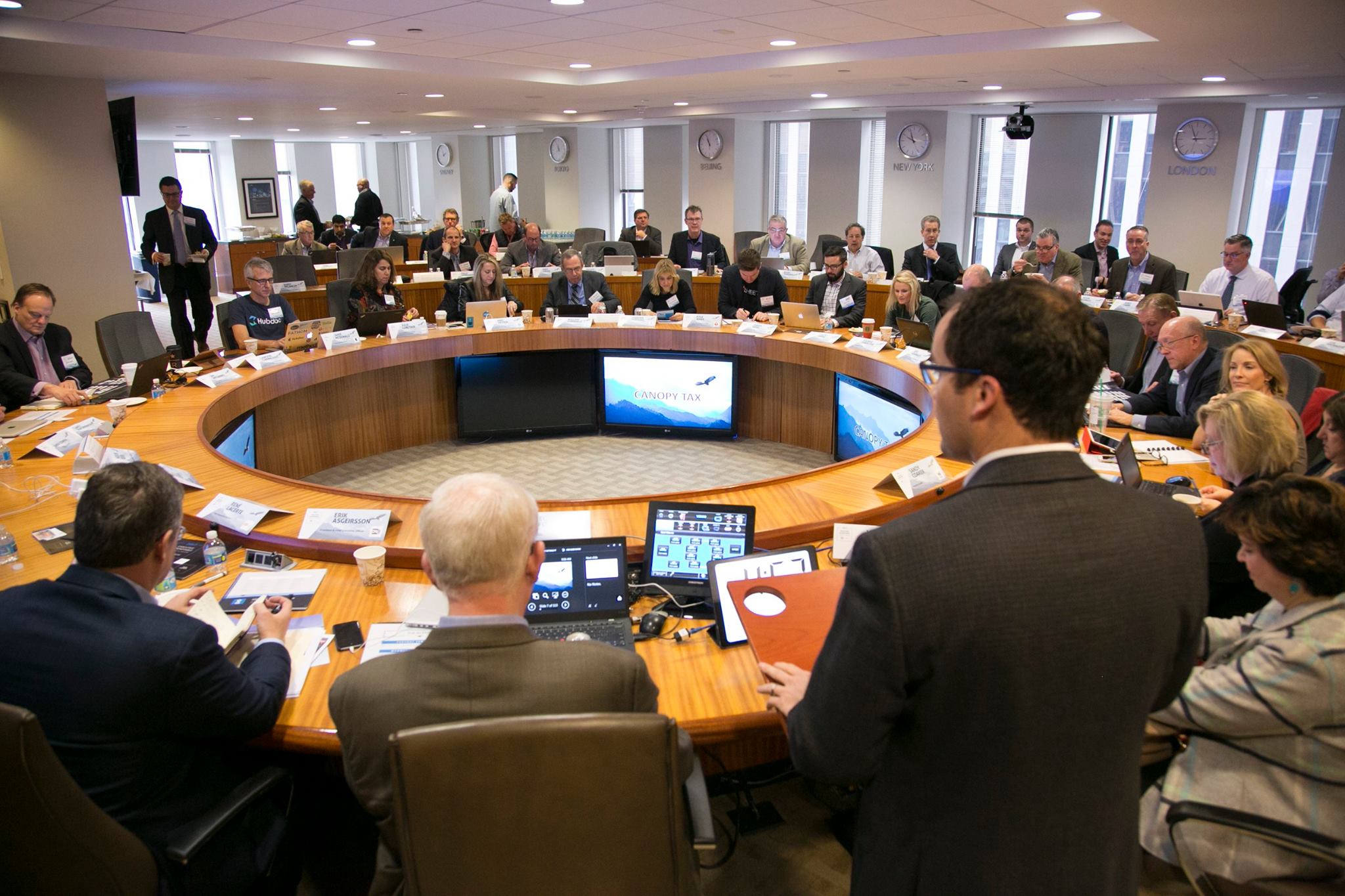Once a year, the AICPA and CPA.com jointly host an event called the Executive Roundtable. The invitation-only event occurs at the AICPA offices in New York City and, for two days, attendees enjoy a deep dose of accounting technology while they discuss innovation and changes that are facing the accounting profession.
Traditionally, 40 technology vendors attend, and each gets to make a presentation to the group discussing their product and services, and their vision for the future of accounting technology. Other attendees include consultants to the accounting profession, accountants in firms, members of accounting associations, members of the accounting press, and members of the AICPA and CPA.com.
One of the highlights of the event is a briefing by Barry Melancon, president and CEO of the AICPA. This year, Melancon shared insights on how the recent election results might affect the accounting profession and other predictions for the future of the profession.
“We really are in the change management business – change management for the profession,” Melancon stated. “We won’t recognize the vast majority of CPA firms and what they’re doing in five to 10 years.”
Change might be on the horizon, but traditionally accountants have a hard time changing themselves – not for lack of desire but their detail-oriented minds require lots of i-dotting and t-crossing before they move forward with any change. “We talk about disruption – but we all know the hardest thing to do is disrupt yourself,” said Melancon.
The AICPA leader discussed potential change in the form of workplace demographics (four generations in the workforce simultaneously!), cybersecurity (yes, companies should expect to be audited for their compliance in this area), and blockchain (nearly all major banks are already on board, studying and starting blockchain projects).
Melancon also discussed the recent presidential election and its potential impact on the accounting profession, from the way we communicate with our clients, to the expectation of tax reform and trade tariffs, to the potential for changing audit procedures. The actual election results formed the basis for a brief discussion on understanding our clients and business associates. “What many heard was that the intelligent people of this country didn’t vote for [President Donald] Trump. That is fake news and is not supported in the facts. Many people who were well meaning were making choices of a system that didn’t give us the best two possible choices. From a land mass perspective, the country overwhelmingly voted for Trump, or for change.”
Now that a new Congress is in session, speculation is that major tax reform is on the near horizon and that it will be significant. “You’re going to see 1986-level tax reform,” suggested Melancon, but he warned that we shouldn’t expect anything like simplification.
In particular, Melancon indicated that current discussions on Capitol Hill include not just changes in taxation based on where products are produced and sold, but also changes in accounting procedures. Imagine the tax and financial reporting implications of not being able to take a deduction for the cost of part of your product if it is produced in another country, and that’s just one example. To paraphrase Bette Davis, “Fasten your seatbelts, accountants, it’s going to be a bumpy ride.”
Thanks for reading CPA Practice Advisor!
Subscribe Already registered? Log In
Need more information? Read the FAQs
Tags: Digital Currency




